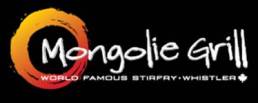Effective May 5,2015 Canadian Securities Regulators have added another burden on companies raising capital from Accredited (i.e. Angel) Investors. Instead of just relying on the honesty of the investor, companies must “take steps” to ensure that the investor is not lying.
When startups raise capital from angel investors, they rely on a so-called “exemption” from the requirement to produce a full blown prospectus as required by companies going public. The most popular exemption for companies seeking angels is the “Accredited Investor” exemption. To use this, the angel investor must be wealthy to the extent that she is a millionaire (excluding residence) OR makes more than $200K/year (btw – CRA reports that to be in the top 1% of income earners in Canada, you had to make at least $201K in 2012).
When signing up investors, companies should use a subscription agreement in which there is a section that qualifies the investor as being accredited. The investor need only check a box and sign. While an investor may not be a liar, I can see a cash-hungry entrepreneur doing the nudge-nudge-wink-wink kind of thing by suggesting that a not-so-accredited investor pump up their assets’ values a bit in order to qualify and this is really what the regulators are trying to avoid – not that anyone is a liar or cheat but that investors go in with their eyes open.
Now, as of this month, entrepreneurs must give investors a RAF – Risk Acknowledgement Form (#45-106F12) – not previously required – and, they must also “take steps” (which are not specified by the regulators) to ensure that the investor meets the wealth test. This puts the onus on the entrepreneur. Should he ask for a copy of the investor’s income tax return? No way. I wouldn’t provide that! In talking to various lawyers around town, I concluded that if an entrepreneur points out the requirements and explains them to the investor and the investor clearly understands the criteria and the entrepreneur keeps a record of that discussion, it should suffice. It is required that the RAF be kept on file for 8 years. However, I also learned that there is NO time limitation when it comes to a misrepresentation. In theory, an investor who is not accredited could seek to rescind her investor 20 years later!
Finally, it should be noted that the RAF and the extra steps are NOT required at all if the investor has net liquid assets in excess of $5 million. That’s interesting because what if they claim that they are using this exemption but, in fact, there’s a bad day on the market and their stock portfolio puts them at $4.9 million, are they a liar?

 May 6th, 2015
May 6th, 2015  Mike
Mike  Posted in
Posted in  Tags:
Tags: 









